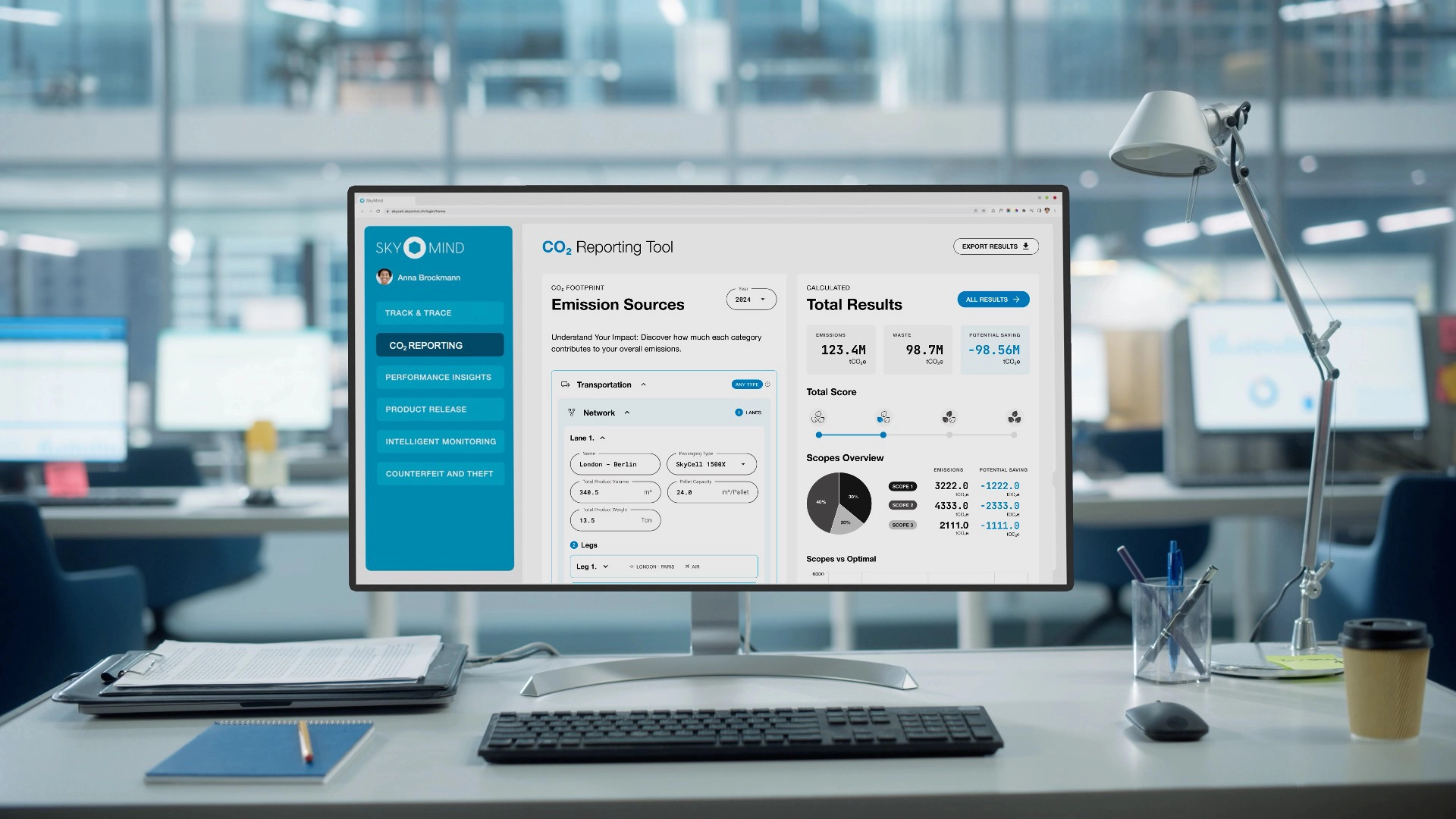SkyCell and Validaide Team Up to Reduce Carbon Emissions in Pharmaceutical Supply Chains
SkyCell, a technology company specializing in the pharmaceutical supply chain, has partnered with Validaide, a lane risk assessment platform, to improve decision-making for pharmaceutical companies.
This collaboration leverages AI and data analytics to enhance lane risk assessments, aiming to address the industry's $35 billion annual losses due to failures in temperature-controlled logistics.

CO2 Reporting tool Source: SkyCell
The partnership integrates SkyCell’s supply chain software, SkyMind, with Validaide’s lane risk assessment and ground handling data. This integration enables pharmaceutical companies to make decisions based on risk, cost, and carbon emissions. SkyMind’s CO₂e software, DECARBONIZE, based on MIT research, facilitates comparisons between one-way and reusable packaging options, aiming to minimize environmental impact. Validaide’s platform will now conduct lane risk assessments and CO₂e comparisons concurrently.
SkyMind, launched earlier this year, is an AI-powered system designed to enhance operational control, streamline processes, and reduce CO₂ emissions. Validaide’s network of over 1,300 companies provides quantitative operational data, complementing SkyMind’s qualitative data to improve decision-making for pharmaceutical shipments.
Richard Ettl, SkyCell CEO, stated that technology and collaboration are crucial for reducing costs, risks, and CO₂ emissions in pharma supply chains. Eelco De Jong, Validaide’s managing director, emphasized the combined qualitative and quantitative data as a comprehensive solution for the industry.
Topics: Tools & Methods